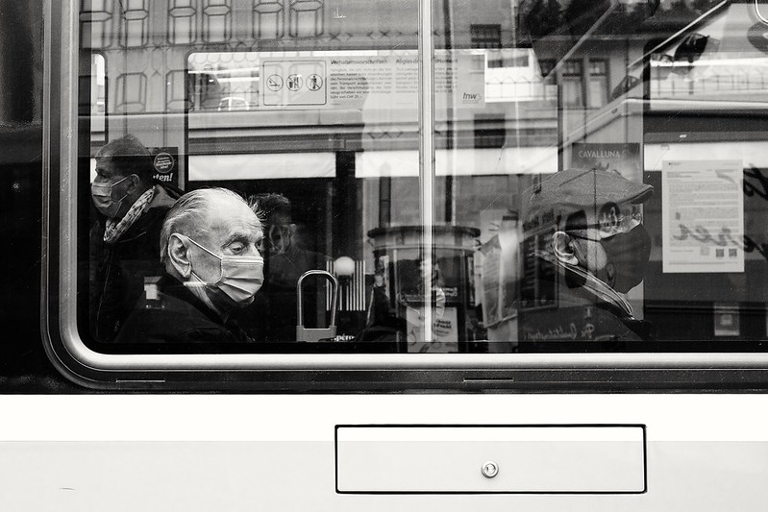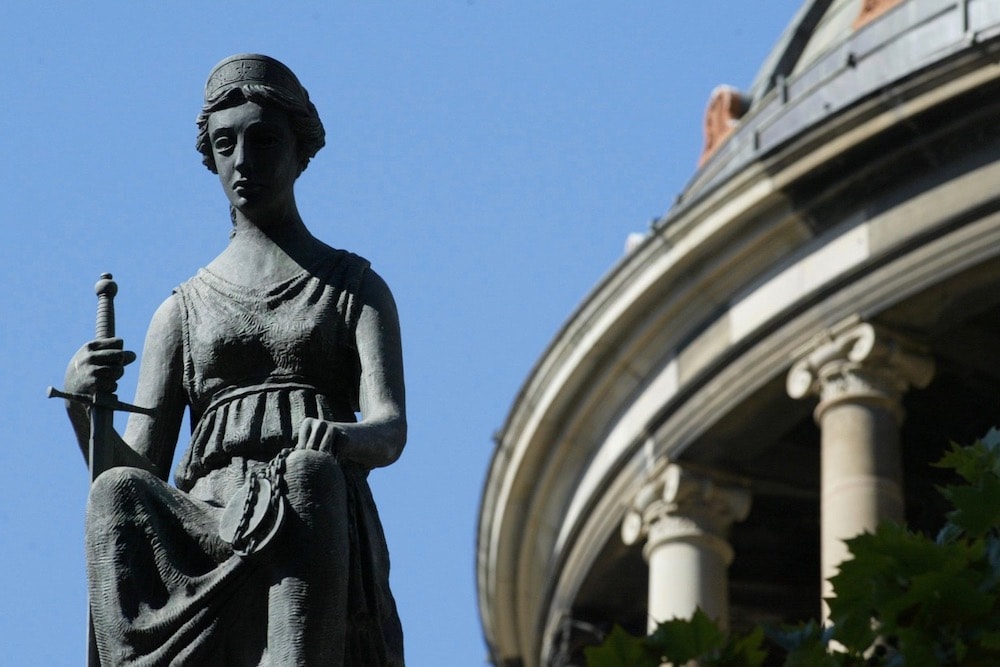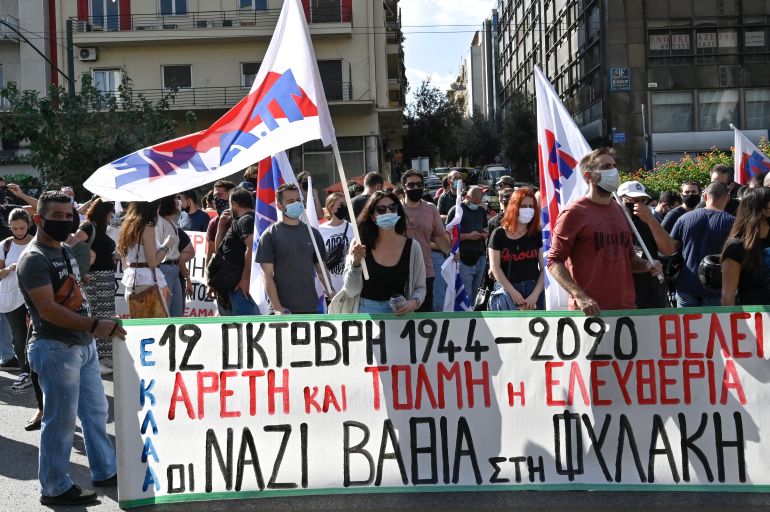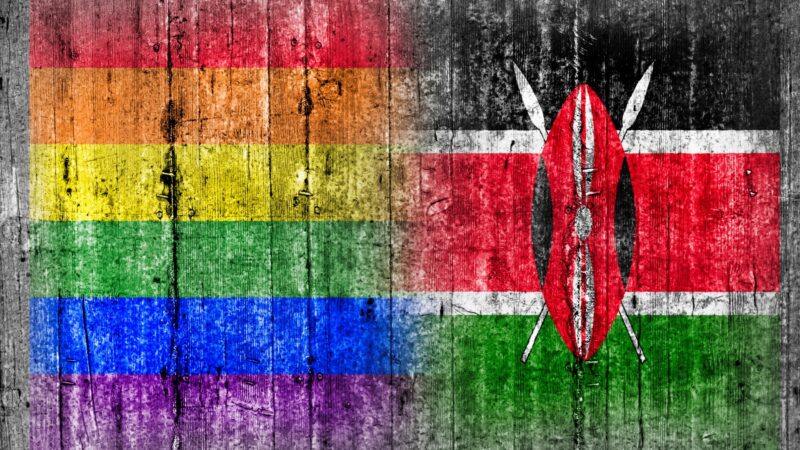The Pandemic Portal View
May 3, 2023

“In order to fully recover, we must first recover the society that has made us sick.”
I can still hear those prophetic words, now a quarter-century old, echoing through the Church Center of the United Nations. At the podium was David, a leader with New Jerusalem Laura, a residential drug recovery program in North Philadelphia that was free and accessible to people, no matter their insurance and income status. It was June 1998 and hundreds of poor and low-income people had gathered for the culminating event of the “New Freedom Bus Tour: Freedom from Unemployment, Hunger, and Homelessness,” a month-long, cross-country organizing event led by welfare rights activists. Two years earlier, President Bill Clinton had signed welfare “reform” into law, gutting life-saving protections and delivering a punishing blow to millions of Americans who depended on them.
That line of David’s has stuck with me over all these years. He was acutely aware of how one’s own health — whether from illness, addiction, or the emotional wear and tear of life — is inextricably connected to larger issues of systemic injustice and inequality. After years on the frontlines of addiction prevention and treatment, he also understood that personal recovery can only happen en masse in a society willing to deal with the deeper malady of poverty and racism. This month, his words have been on my mind again as I’ve grieved over the death of Reverend Paul Chapman, a friend and mentor who was with me at that gathering in 1998. The issue of “recovery” has, in fact, been much on my mind as the Biden administration prepares to announce the official end of the public-health emergency that accompanied the first three years of the Covid-19 pandemic.
For our society, that decision is more than just a psychological turning of the page. Even though new daily cases continue to number in the thousands nationally, free testing will no longer be available for many, and other pandemic-era public-health measures — including broader access to medication for opioid addiction — will also soon come to an end. Worse yet, a host of temporary health and nutrition protections are now on the chopping block, too (and given the debate on the debt ceiling in Congress, the need for such programs is particularly dire).
When the pandemic first hit, the federal government temporarily banned any Medicaid or Children’s Health Insurance Program (CHIP) cuts, mandating that states offer continuous coverage. As a result, enrollment in both swelled, as many people in need of health insurance found at least some coverage. But that ban just expired and tens of millions of adults and children are now at risk of losing access to those programs over the next year. Many of them also just lost access to critically important Supplemental Nutrition Assistance Program (SNAP) benefits, as pandemic-era expansions of that program were cut last month.
Of course, the announced “end’ of the public-health emergency doesn’t mean the pandemic is really over. Thousands of people are still dying from it, while 20% of those who had it are experiencing some form of long Covid and many elderly and immunocompromised Americans continue to feel unsafe. Nor, by the way, does that announcement diminish a longer-term, slow-burning public health crisis in this country.
Early in the pandemic, Reverend William Barber II, co-chair of the Poor People’s Campaign, warned that the virus was exploiting deeply entrenched fissures in our society. Before the pandemic, there had already been all too many preconditions for a future health calamity: in 2020, for instance, there were 140 million people too poor to afford a $400 emergency, nearly 10 million people homeless or on the brink of homelessness, and 87 million underinsured or uninsured.
Last year, the Poor People’s Campaign commissioned a study on the connections between Covid-19, poverty, and race. Sadly, researchers found the fact that all too many Americans refused to be vaccinated did not alone explain why this country had the highest pandemic death toll in the world. The lack of affordable and accessible health care contributed significantly to the mortality rate. The study concluded that, despite early claims that Covid-19 could be a “great equalizer,” it’s distinctly proven to be a “poor people’s pandemic” with two to five times as many inhabitants of poor counties dying of it in 2020 and 2021 as in wealthy ones.
The pandemic not only exposed social fissures; it exacerbated them. While life expectancy continues to rise across much of the industrialized world, it stagnated in the United States over the last decade. Then, during the first three years of the pandemic, it dropped in a way that experts claim is unprecedented in modern global history.
In comparison, peer countries initially experienced just one-third as much of a decline in life expectancy and then, as they adopted effective Covid-19 responses, saw it increase. In our country, the stagnation in life expectancy before the pandemic and the seemingly unending plunge after it hit mark us as unique not just among wealthy countries, but even among some poorer ones. The Trump administration’s disastrous pandemic response was significantly to blame for the drop, but beyond that, our track record over the last decade speaks volumes about our inability to provide a healthy life for so many in this country. As always, the poor suffer first and worst in such a situation.
The Pandemic as a Portal
In the early weeks of those Covid-19 lockdowns, Indian writer Arundhati Roy reflected on the societal change often wrought by pandemics in history. And she suggested that this sudden crisis could be an opportunity to embrace necessary change:
“Historically, pandemics have forced humans to break with the past and imagine the world anew. This one is no different. It is a portal, a gateway, between one world and the next. We can choose to walk through it, dragging the carcasses of our prejudice and hatred, our avarice, our data banks and dead ideas, our dead rivers and smoky skies behind us. Or we can walk through lightly, with little luggage, ready to imagine another world. And ready to fight for it.”
There was hope in Roy’s words but also caution. As she suggested, what would emerge from that portal was hardly guaranteed to be better. Positive change is never a certainty (in actuality, anything but!). Still, a choice had to be made, action taken. While contending with the great challenges of our day — widespread poverty, unprecedented inequality, racial reckoning, rising authoritarianism, and climate disaster — it’s important to reflect soberly on just how we’ve chosen to walk through the portal of this pandemic. The sure-footed decisions, as well as the national missteps, have much to teach us about how to chart a better path forward as a society.
Consider the federal programs and policies temporarily created or expanded during the first years of the pandemic. While protecting Medicaid, CHIP, and SNAP, the government instituted eviction moratoriums, extended unemployment insurance, issued stimulus payments directly to tens of millions of households, and expanded the Child Tax Credit (CTC). Such proactive policy decisions did not by any means deal with the full extent of need nationwide. Still, for a time, they did mark a departure from the neoliberal consensus of the previous decades and were powerful proof that we could house, feed, and care for one another. The explosion of Covid cases and the lockdown shuttering of the economy may have initially triggered many of these policies, but once in place, millions of people did experience just how sensible and feasible they are.
The Child Tax Credit is a good example. In March 2021, the program was expanded through the American Rescue Plan, and by December the results were staggering. More than 61 million children had benefited and four million children were lifted above the official poverty line, a historic drop in the overall child poverty rate. A report found that the up to $300 monthly payments significantly improved the ability of families to catch up on rent, afford food more regularly, cover child-care expenses, and attend to other needs. Survey data also suggested that the CTC helped improve the parental depression, stress, and anxiety that often accompany poverty and the suffering of children.
How extraordinary, then, that, rather than being embraced for offering the glimmer of something new on the other side of that pandemic portal, the expanded CTC was abandoned as 2022 ended. The oppressive weight of our “dead ideas,” to use Roy’s term, crushed that hopeful possibility. Last year, led by a block of unified Republicans, Congress axed it, invoking the tired and time-worn myth of scarcity as a justification. When asked about the CTC, Congressman Kevin Brady (R-TX) claimed that “the country frankly doesn’t have the time or the money for the partisan, expensive provisions such as the Child Tax Credit.” Consider such a response especially disingenuous given that Brady and a majority of congressional Republicans and Democrats voted to increase the military budget to a record $858 billion that same year.
In so many other ways, our society has refused to relinquish old and odious thinking and is instead “dragging the carcasses of our prejudice and hatred” through the portal of the pandemic.
There are continued attacks on the health of women and the autonomy of those who can get pregnant; on LGBTQ+ people, including a wave of anti-trans legislation; on homeless people who are criminalized for their poverty; and on poor communities as a whole, including disinvestment, racist police abuse, and deadly mass incarceration at sites like New York City’s Rikers Island and the Southern Regional Jail in the mountains of West Virginia. And while weathering a storm of Christian nationalist and white supremacist mass shootings, this country is a global outlier on the issue of public safety, fueled by endless stonewalling on sensible gun legislation.
To add insult to injury, economic inequality in the United States rose to unprecedented heights in the pandemic years (which proved a godsend for America’s billionaires), with millions hanging on by a thread and inflation continuing to balloon. And as pandemic-era protections for the poor are being cut, ongoing protections for the rich — including Donald Trump’s historic tax breaks — remain untouched.
Another World Is Possible
In the office of the Employment Project where I worked upon first moving to New York City in 2001, there was a poster whose slogan — “Another World Is Possible” — still stays with me. It hung above my head, while I labored alongside my friend and mentor Paul Chapman.
Paul died this April and we just held a memorial for him. He was an activist in welfare rights and workers’ rights, director of the Employment Project, and one of the founders of the Poverty Initiative, a predecessor to the Kairos Center for Religions, Rights, and Social Justice that I currently direct.
Paul did pioneering work to bring together Protestant and Catholic communities in Boston, organized delegations of northern clergy to support civil rights struggles in small towns in North Carolina, and sponsored significant fundraisers for the movement, alongside his friend, theologian Harvey Cox. He also spent time in Brazil connecting with liberation theologians and others who went on to found the World Social Forum (WSF), an annual gathering of social movements from across the globe whose founding mantra was “Another World Is Possible.” Over the course of his long life, Paul would do what Black Freedom Struggle leader Ella Baker called “the spadework,” the slow, often overlooked labor of building trust, caring for people, planting seeds, and tilling the ground so that transformative movements might someday blossom. His life was a constant reminder that every organizing moment, no matter how small, is a fundamentally important part of how we build toward collective liberation.
Paul explained many things, including that powerful movements for social change depend on the leadership of those most impacted by injustice. Right next to the WSF poster there was another that read: “Nothing about us, without us, is for us.” Paul spoke regularly about how poor and oppressed people had to be the moral-standard bearers for society. He was unyielding in his belief that it was the duty of clergy and faith communities to stand alongside the poor in their struggles for respect and dignity. As a young antipoverty organizer and seminarian, I was deeply inspired by the way he modeled a principled blending of political and pastoral work.
Perhaps the most important lesson I learned from him was about the idea of “kairos” time. Paul taught me that, in ancient Greece, there were two conceptions of time. Chronos was normal, chronological time, while kairos was a particular moment when normal time was disrupted and something new promised — or threatened — to emerge. In our hours of “theological reflection,” he would say that during kairos time, as the old ways of the world were dying and new ones were struggling to be born, there was no way you could remain neutral. You had to decide whether to dedicate your life to change or block its path. In some fashion, his description of kairos time perfectly matched Roy’s evocative metaphor of that pandemic portal and when I first read her essay I instantly thought of Paul.
In antiquity, Greek archers were trained to recognize the brief kairos moment, the opening when their arrow had the best chance of reaching its target. The image of the vigilant archer remains a powerful one for me, especially because kairos time represents both tremendous possibility and imminent danger. The moment can be seized and the arrow shot true or it can be missed with the archer just as quickly becoming the target. Paul lived his life as an archer for justice, ever vigilant, ever patient, ever hopeful that another better world was indeed possible.
Despite our bleak current moment, I retain the same hope. However briefly, the pandemic showed us that such an American world is not only possible, but right at our fingertips. As the public-health emergency draws to an “official” end, it’s hardly a surprise to me that so many of those in power have chosen to double down on policies that protect their interests. But like Paul, it’s not the leadership of the rich and powerful that I choose to follow. As our communities continue to fight for healthcare, housing, decent wages, and so much more, I believe that, given half a chance, the poor, the hurting, and the abandoned, already standing in the gap between our wounded old world and a possible new one, could help usher us into a far better future.
Copyright 2023 Liz Theoharis
Featured image: Covid 19 by Transformer18 is licensed under CC BY-ND 2.0 / Flickr
Liz Theoharis a TomDispatch regular, is a theologian, ordained minister, and anti-poverty activist. Co-chair of the Poor People’s Campaign: A National Call for Moral Revival and director of the Kairos Center for Religions, Rights and Social Justice at Union Theological Seminary in New York City, she is the author of Always With Us?: What Jesus Really Said About the Poor.







